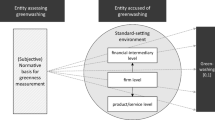Abstract
Several experimental studies have shown that the crowding-out effect of monitoring may outweigh its disciplining effect through intrinsic motivation destruction, thereby reducing effort. However, most of these experiments use numeric effort tasks that subjects may not be intrinsically motivated to complete. This paper aims to analyze the incentive effects of monitoring using a real-effort task for which intrinsic motivation is more likely to exist. We conducted two similar experiments, in the lab in Montreal and in the field in Ouagadougou. In contrast to the lab, subjects in the field are unaware they are taking part in an experiment.
The following results are observed both in the lab and in the field. Relative to the baseline treatment, we find that our two monitoring treatments significantly increase effort, in line with agency theory. However, effort levels are not significantly different between the monitoring treatments. Finally, increasing the subjects’ wage is found to have no effect on effort.
Similar content being viewed by others
References
Alchian, A. A., & Demsetz, H. (1972). Production, information costs, and economic organization. American Economic Review, 62(5), 777–795.
Armantier, O., & Boly, A. (2008). Can corruption be studied in the lab? Comparing a field and a lab experiment. CIRANO Working Papers, s2008-26.
Becker, G. S. (1968). Crime and punishment: an economic approach. Journal of Political Economy, 76(2), 169–217.
Delfgaauw, J., & Dur, R. (2008). Incentives and Workers’ motivation in the public sector. Economic Journal, 118, 171–191.
Dickinson, D. L. (2001). The carrot vs. the stick in work team motivation. Experimental Economics, 4(1), 107–124.
Dickinson, D. L., & Villeval, M. C. (2008). Does monitoring decrease work effort? The complementarity between agency and crowding-out theories. Games and Economic Behavior, 63, 56–76.
Dur, R. (2009). Gift exchange in the workplace: money or attention? Journal of the European Economic Association, 7, 550–560.
Falk, A., & Kosfeld, M. (2006). Distrust - the hidden cost of control. American Economic Review, 96(5), 1611–1630.
Fehr, E., & Falk, A. (2002). Psychological foundations of incentives. European Economic Review, 46(4–5), 687–724.
Fehr, E., & Gächter, S. (2002). Do incentive contracts crowd out voluntary cooperation? Working paper No. 34, Institute for Empirical Research in Economics, University of Zurich.
Fehr, E., & Rockenbach, B. (2003). Detrimental effects of sanctions on human altruism. Nature, 422, 137–140.
Fehr, E., & Schmidt, K. M. (2007). Adding a stick to the carrot? The interaction of bonuses and fines. American Economic Review, 97, 177–81.
Frey, B. S. (1993). Does monitoring increase work effort? The rivalry with trust and loyalty. Economic Inquiry, 31, 663–670.
Frey, B. S., & Oberholzer-Gee, F. (1997). The cost of price incentives: an empirical analysis of motivation crowding-out. American Economic Review, 87, 746–755.
Frey, B. S., & Jegen, R. (2001). Motivation crowding theory. Journal of Economic Surveys, 15(5), 589–611.
Gächter, S., & Falk, A. (2002). Work motivation, institutions, and performance. In R. Zwick & A. Rapoport (Eds.), Experimental business research (pp. 351–372). Norwell: Kluwer Academic.
Gneezy, U., & List, J. A. (2006). Putting behavioral economics to work: testing for gift exchange in labor markets using field experiments. Econometrica, 74(5), 1365–1384.
Gneezy, U., & Rustichini, A. (2000). A fine is a price. Journal of Legal Studies, 19, 1–18.
Hennig-Schmidt, H., Rockenbach, B., & Sadrieh, A. (2010). In search of workers’ real effort reciprocity - a field and a laboratory experiment. Journal of the European Economic Association, 8(4), 817–837.
Kube, S., Marechal, M. A., & Puppe, C. (2008). The currency of reciprocity: gift-exchange in the workplace. Working Paper Series, Nr. 377, Universtiy of Zürich.
Levitt, S. D., & List, J. A. (2007). What do laboratory experiments measuring social preferences tell us about the real world. Journal of Economic Perspectives, 21(2), 153–174.
Loewenstein, G. (1999). Experimental economics from the vantage-point of behavioral economics. Economic Journal, 109(453), 25–34.
Nagin, D. S., Rebitzer, J. B., Sanders, S., & Taylor, L. J. (2002). Monitoring, motivation, and management: the determinants of opportunistic behavior in a field experiment. American Economic Review, 92(4), 850–873.
Ryan, R. M., & Deci, E. L. (2000). Intrinsic and extrinsic motivations: classic definitions and new directions. Contemporary Educational Psychology, 25, 54–67.
Schulze, G. G., & Frank, B. (2003). Deterrence versus intrinsic motivation: experimental evidence on the determinants of corruptibility. Economics of Governance, 4, 143–160.
Smith, V. L. (1982). Microeconomic systems as an experimental science. American Economic Review, 72, 923–955.
Starmer, C. (1999). Experimental economics: hard science or wasteful tinkering? Economic Journal, 109(453), 5–15.
Author information
Authors and Affiliations
Corresponding author
Additional information
I am indebted to the editor and two anonymous referees for helpful comments. I would like to thank Jim Engle-Warwick, Gérard Gaudet, Julie Héroux, Abraham Hollander, Claude Montmarquette, and participants at the ESA 2008 European Meeting in Lyon. I am particularly indebted to Olivier Armantier. All remaining errors are mine. The views expressed herein are those of the author and do not necessarily reflect the views of the United Nations Industrial Development Organization.
Electronic Supplementary Material
Below is the link to the electronic supplementary material.
Rights and permissions
About this article
Cite this article
Boly, A. On the incentive effects of monitoring: evidence from the lab and the field. Exp Econ 14, 241–253 (2011). https://doi.org/10.1007/s10683-010-9265-1
Received:
Accepted:
Published:
Issue Date:
DOI: https://doi.org/10.1007/s10683-010-9265-1




